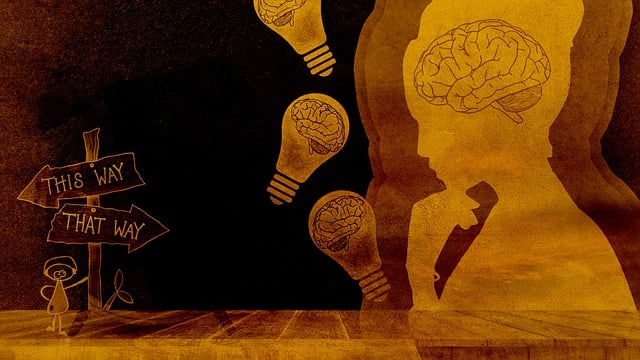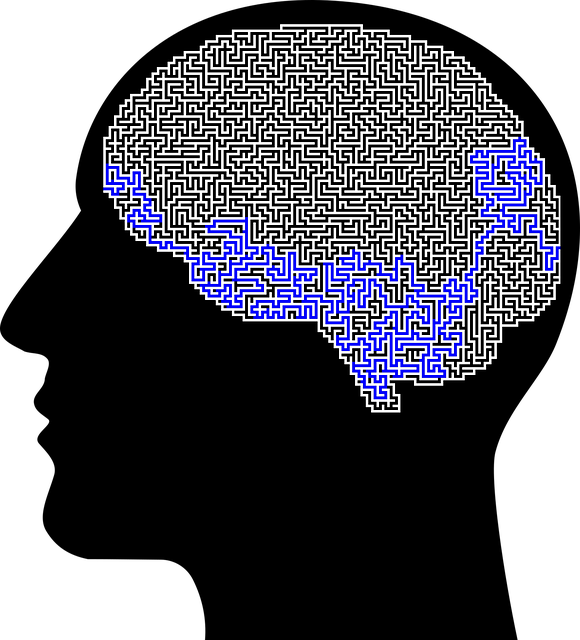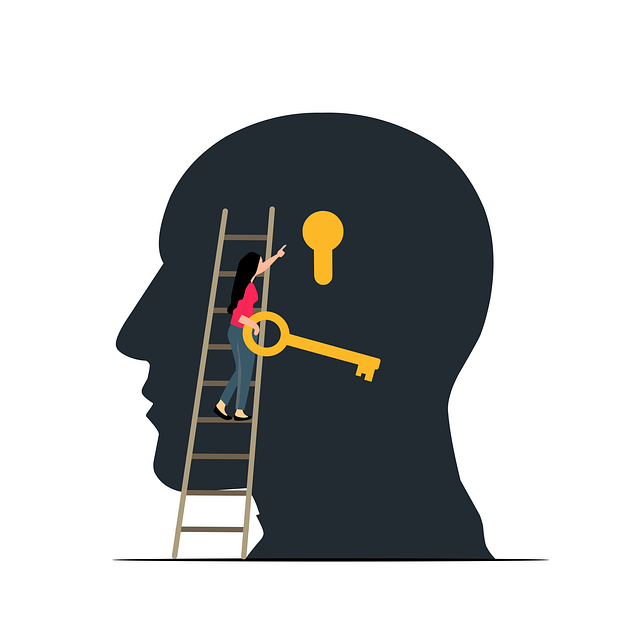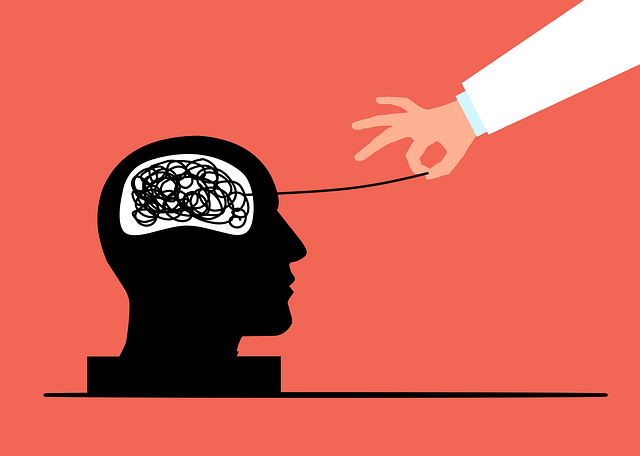Emotional Intelligence (EI) is key to navigating life's challenges, especially major transitions like career changes or personal losses. Lone Tree Major Life Transitions Therapy focuses on EI development through self-awareness exercises, communication strategies, and inner strength building. This enhances emotional regulation, decision-making, and resilience. Techniques like Mental Wellness Journaling, gratitude practices, and mindfulness support clients in managing stress, anxiety, and uncertainty during transitions. Therapy provides a safe space for emotional exploration, fostering cultural sensitivity and personal growth, ultimately improving mental well-being.
Emotional intelligence (EQ) is a powerful tool for navigating life’s challenges and fostering well-being. This article explores the multifaceted concept of EQ, delving into its profound impact on personal growth and resilience. We’ll uncover strategies to enhance self-awareness, a cornerstone of emotional understanding, and discuss the transformative power of therapy in building EQ. Furthermore, we’ll examine how this skill set is invaluable during major life transitions, offering tools to thrive amidst change, especially with the support of Lone Tree’s expert therapeutic services.
- Understanding Emotional Intelligence and its Impact on Well-being
- Recognizing Personal Strengths: Self-Awareness as a Foundation
- The Role of Therapy in Enhancing Emotional Intelligence
- Navigating Major Life Transitions with Increased EQ
- Practical Strategies for Daily Emotional Growth and Resilience
Understanding Emotional Intelligence and its Impact on Well-being

Emotional intelligence (EI) is a powerful tool for navigating life’s challenges and major life transitions. It refers to the ability to recognize, understand, and manage one’s own emotions, as well as perceive, interpret, and influence the emotions of others. This skill set is crucial not just for interpersonal relationships but also for maintaining mental wellness. When individuals foster their emotional intelligence, they can better cope with stress, build resilience, and enhance their overall quality of life.
For those facing major life transitions—such as changing careers, moving to a new city, or dealing with significant personal losses—developing EI can be transformative. Lone Tree major life transition therapy often emphasizes the importance of emotional awareness and regulation in managing these changes. Risk management planning for mental health professionals includes integrating EI techniques to support clients in building confidence, improving communication, and cultivating a positive mindset. Even simple practices like Mental Wellness Journaling Exercise Guidance can help individuals gain insights into their emotions, track progress, and promote self-care—all vital aspects of enhancing emotional intelligence and overall well-being.
Recognizing Personal Strengths: Self-Awareness as a Foundation

Recognizing your personal strengths is a pivotal step in building emotional intelligence. Self-awareness, as the foundation of this process, allows individuals to understand their unique capabilities and limitations. This involves introspection—a practice often facilitated by therapy—where one reflects on past experiences, emotions, and behaviors. By understanding how you react under pressure or during major life transitions, like a Lone Tree that stands tall amidst change, you can begin to identify your strengths and weaknesses.
This self-reflection is crucial for mental health professionals, as it informs their risk assessments. It’s not just about personal growth; it’s also about ensuring the well-being of those we support. Mental Health Policy Analysis and Advocacy play a role here by promoting awareness and understanding of emotional intelligence, thereby encouraging individuals to invest in their own mental health and fostering an environment where self-awareness is valued and encouraged. Enhancing emotional intelligence through recognizing personal strengths can significantly impact one’s ability to navigate life’s challenges, much like a Lone Tree that stands resilient during storms.
The Role of Therapy in Enhancing Emotional Intelligence

Therapy plays a pivotal role in enhancing emotional intelligence, especially during major life transitions that can significantly impact an individual’s mental state and overall well-being. Lone Tree Major Life Transitions Therapy offers a safe and supportive environment where individuals can explore and process their emotions effectively. Through structured conversations and therapeutic techniques, clients gain deeper insights into their feelings, thoughts, and behaviors, fostering self-awareness—a cornerstone of emotional intelligence.
This therapeutic journey encourages the development of emotional regulation skills, enabling individuals to manage stress, anxiety, and difficult emotions healthily. Moreover, therapy promotes cultural sensitivity in mental healthcare practice, ensuring that diverse perspectives and experiences are understood and respected. By addressing underlying issues and providing tools for self-esteem improvement, Lone Tree Major Life Transitions Therapy empowers clients to navigate life’s challenges with heightened emotional intelligence.
Navigating Major Life Transitions with Increased EQ

Navigating Major Life Transitions with Increased EQ
Life transitions, whether it’s a new job, relocation, or significant personal changes, can be challenging. However, emotional intelligence (EQ) acts as a beacon of resilience during these times. Individuals with higher EQ are better equipped to handle stress and uncertainty because they understand their emotions and can regulate them effectively. This capability allows them to make thoughtful decisions rather than reacting impulsively in the face of change.
In times like these, self-awareness exercises prove invaluable. Recognizing and understanding one’s feelings helps to dispel any negative thoughts or anxiety. Additionally, communication strategies developed through EQ training facilitate open dialogue with others, fostering support systems that are crucial during transitions. Moreover, focusing on inner strength development enables individuals to adapt and grow, turning potential setbacks into opportunities for personal growth. Lone Tree therapy can provide the necessary tools and guidance to navigate these transitions smoothly, leveraging the power of increased emotional intelligence.
Practical Strategies for Daily Emotional Growth and Resilience

Embracing daily emotional growth is a journey that involves consistent practice and mindfulness. One effective strategy is to cultivate gratitude, a powerful tool for shifting focus from negativity to positivity. Starting your day by reflecting on things you’re grateful for, whether it’s a supportive relationship or a peaceful moment, sets a positive tone. This simple act can enhance resilience during challenging times, as it reminds us of the abundance in our lives.
Additionally, therapy plays a significant role in navigating major life transitions and fostering emotional healing processes. It provides a safe space to explore and understand emotions without judgment. Integrating mindfulness practices, such as meditation or deep breathing exercises, further strengthens emotional intelligence. These techniques help to regulate responses to stress, thereby preventing burnout and promoting better decision-making based on calm, rational thought rather than impulsive reactions.
Emotional intelligence is a powerful tool for navigating life’s challenges, from everyday struggles to major Lone Tree life transitions. By understanding our emotions and those of others, we can foster healthier relationships, make more thoughtful decisions, and build resilience. This article has explored various strategies to enhance emotional intelligence, emphasizing the foundational role of self-awareness, the therapeutic benefits of professional therapy, and practical daily practices. Integrating these insights into your life can lead to profound personal growth and a more fulfilling journey ahead.














